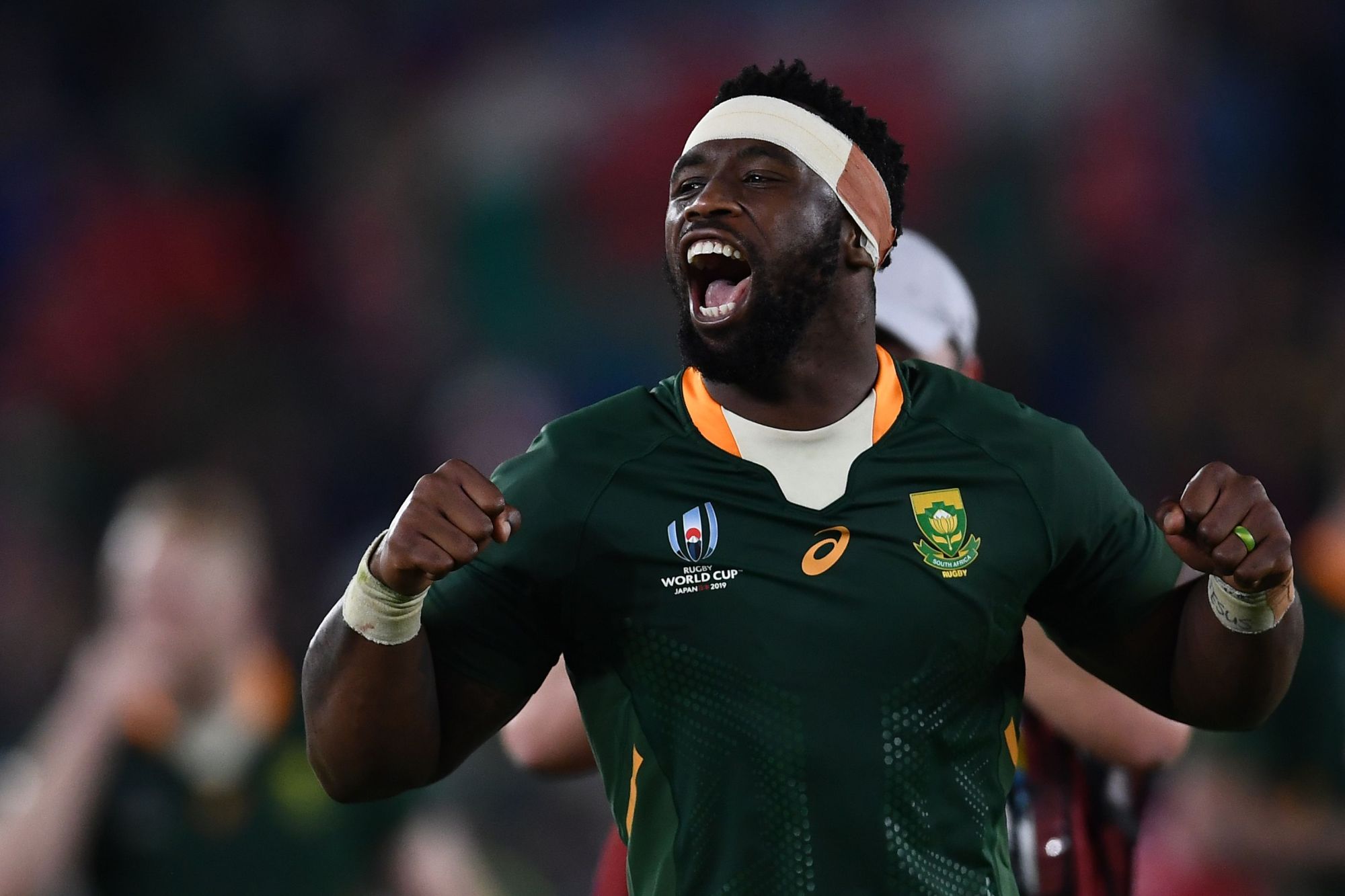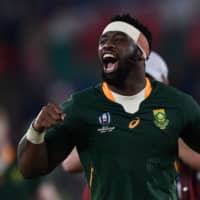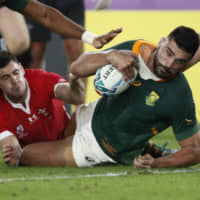South Africa's Rugby World Cup players are hoping an "inspirational" groundswell of support back home can help them lift the Webb Ellis Cup for a third time this coming Saturday, after booking their place in the final on Sunday with a nerve-shredding win over Wales.
South Africa edged the Welsh 19-16 in a tense semifinal at International Stadium Yokohama, with Handre Pollard kicking the decisive penalty four minutes from time to send the Springboks into their first final since 2007.
Their opponents in the showpiece game will be England, the team they beat 12 years ago in Paris to win the World Cup for the second time, having also claimed the trophy on home soil in 1995. Both of those triumphs were greeted with euphoria among South Africans of all creed and color, and prop Tendai Mtawarira is hoping to create another iconic moment when he and his teammates take the field in Yokohama on Saturday.
"It certainly means a great deal," said Mtawarira. "There's a lot of excitement back home. A lot of fans are riding behind the team. I think for us it's just inspiring. We want to go out there and represent our country the best we can.
"I was still a youngster in 1995, I was still in primary school in Zimbabwe. I watched in 2007 and it was amazing, inspirational stuff. I think to be part of a World Cup final is like a dream for me, a dream come true. I've worked hard all throughout my career to get here so I want to make it count."
One day after England had stunned defending champion New Zealand in the first semifinal, South Africa and Wales put on a more prosaic contest, with both sets of forwards locking horns and the backs bombarding each other with high kicks.
Pollard and Wales' Dan Biggar traded penalties before a 57th-minute try from Damian de Allende shifted the momentum in South Africa's favor, only for Wales to hit straight back with a try from winger Josh Adams.
Pollard then landed the knockout blow in the 76th minute, capping another typically gritty South African performance that at one point featured the sight of 172-cm scrumhalf Faf de Klerk squaring up to 200-cm Welsh lock Jake Ball.
"I do enjoy getting physical," said De Klerk. "It's part of the game and you need to be up for it, especially against a team like Wales. They've got 15 guys who are up for it and they're always going to be physical. If I, the smallest guy on the pitch, can add a bit, it gives a bit of motivation to the rest, so I need to be up for it as well."
Wales was looking to reach its first World Cup final, having fallen at the semifinal stage in both 1987 and 2011.
Head coach Warren Gatland will step down following Friday's bronze-medal match against his native New Zealand, and he expressed regret for the one title that eluded him during his 12 years in charge, having won four Six Nations Championships, including three Grand Slams.
"We're very disappointed, but I'm incredibly proud of what we've achieved in this World Cup and what this group of players have done," said Gatland. "We can hold our heads high and leave Japan with a lot of respect. We've got another game and we play the All Blacks. My first game in charge was against England, and the dream was to beat them in my last game but it's not to be.
"This is a great group of players that I've been involved with. We need to recover well over the next couple of days and start preparing for the All Blacks. We're really disappointed about tonight and not being in the final, but we've got to be proud of ourselves."
South Africa head coach Rassie Erasmus only took over in March last year, but already he has transformed a team that won only 11 of its 25 test matches following a third-place finish at the 2015 World Cup, including a first-ever loss to Italy and a record 57-0 defeat to New Zealand.
"I think we've always had the potential in South Africa to be a force in world rugby, and we have always been," said Erasmus. "Even in 2015, when we lost to Japan, we still played in the semifinal against New Zealand and only lost by two points. In 2011, we lost in the quarterfinal against Australia in a quite controversial way, and in 2007, we won it.
"We've always been there or thereabouts, but I think the players in the last two, 2½ years, took responsibility of being really professional and took ownership of what it means to be a professional rugby players. There was a stage in South Africa where being a professional rugby player was just a earning a big pay check. Currently, players understand that if they want to be a professional rugby player, they have to work really hard."



















With your current subscription plan you can comment on stories. However, before writing your first comment, please create a display name in the Profile section of your subscriber account page.